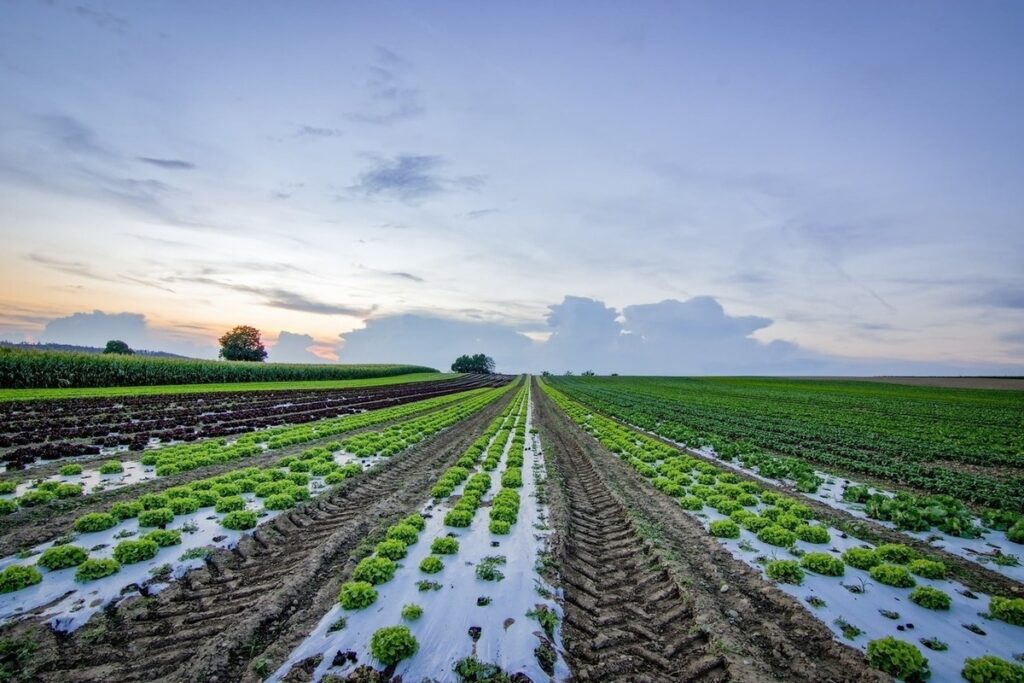
Sustainable agriculture farming is more than just a buzzword—it’s a powerful approach to growing food that protects our environment, supports communities, and ensures long-term food security. As the world faces challenges like climate change, soil degradation, and shrinking biodiversity, the need for sustainable methods has never been greater.
Unlike conventional farming, which often relies heavily on chemical inputs and short-term gains, sustainable agriculture focuses on practices that are regenerative and balanced. This includes crop rotation, organic fertilizers, water conservation, and ethical labor practices. These methods not only produce healthier food but also nurture the soil, reduce pollution, and help small-scale farmers thrive.
At Friend of the Earth, we believe that understanding the true benefits of sustainable agriculture farming is essential for making better food choices and encouraging meaningful change. Whether you’re a conscious consumer, an aspiring farmer, or someone who simply cares about the planet, learning how these practices create a ripple effect of positive impact is key. In this article, we break down the top 10 benefits of sustainable agriculture—clearly and simply—to show why it’s one of the most important shifts in the future of farming.
Let’s dive in.
1. Preserves Natural Resources
Sustainable agriculture prioritizes the careful management of vital resources like water, soil, and air. Instead of exhausting the land with chemical-heavy monoculture crops, it emphasizes practices like crop rotation, composting, and no-till farming.
These methods improve soil fertility, reduce erosion, and enhance the soil’s ability to retain water. For example, farmers using cover crops can reduce the need for irrigation by improving soil structure and water retention. By preserving topsoil and maintaining clean waterways, sustainable farming ensures future generations will have access to the resources they need.
In essence, it works with nature—not against it.
2. Improves Soil Health
Healthy soil is the foundation of productive farming. Unfortunately, conventional farming often strips soil of nutrients, leaving it barren over time. Sustainable agriculture farming, however, prioritizes soil-building practices.
By using organic matter like compost and manure, avoiding synthetic fertilizers, and encouraging biodiversity in the soil ecosystem, farmers can restore and strengthen soil health. Techniques such as agroforestry and permaculture also play a significant role in improving microbial activity and carbon sequestration.
Healthy soil leads to stronger crops and more resilient farms.
3. Reduces Greenhouse Gas Emissions
Farming can be a major contributor to climate change—but it doesn’t have to be. Sustainable methods lower greenhouse gas emissions in multiple ways.
By reducing the reliance on fossil fuel-based fertilizers and machinery, and incorporating practices like rotational grazing and tree planting, sustainable farms act as carbon sinks. Some methods even absorb more carbon than they emit.
Supporting sustainable agriculture is one way we can fight climate change from the ground up—literally.
4. Supports Biodiversity
Conventional agriculture often encourages monoculture—growing the same crop year after year, which limits biodiversity and weakens ecosystem resilience.
Sustainable farming embraces diversity in both plant and animal life. This includes planting multiple crops (polyculture), maintaining wild habitats on farm edges, and reducing chemical inputs that harm insects and wildlife.
Increased biodiversity leads to healthier ecosystems, pollination stability, and natural pest control—all without relying on synthetic chemicals.
5. Enhances Food Security
Food security isn’t just about having enough food—it’s about having access to nutritious, safe, and culturally appropriate food for all people.
Sustainable agriculture farming supports local food systems, which strengthens communities and reduces dependence on global supply chains. This decentralization means fewer disruptions in times of crisis, like pandemics or climate disasters.
It also increases resilience in food production, ensuring we can feed growing populations sustainably.
6. Promotes Animal Welfare
In sustainable farming systems, animals are treated humanely. They’re allowed to roam, graze, and behave naturally—unlike in factory farming, where animals often live in confined, stressful environments.
Sustainable farms avoid the routine use of antibiotics and hormones, focusing instead on health through diet, clean environments, and humane treatment. This results in healthier animals and higher-quality food products for consumers.
Animal welfare is an ethical cornerstone of sustainable agriculture.
7. Encourages Fair Labor Practices
Sustainable agriculture isn’t just about the environment—it’s also about people. Ethical labor is a key part of sustainable systems.
Farmworkers on sustainable farms are often paid fairly, work in safe conditions, and are respected for their contributions. This contrasts with exploitative labor often found in industrial-scale farms.
A food system can’t truly be sustainable if it harms the people who grow and harvest the food.
8. Strengthens Local Economies
Sustainable farms often operate on a local or regional scale, selling directly to consumers through farmers’ markets, co-ops, or community-supported agriculture (CSA) programs.
This keeps money circulating within local economies, supports small business owners, and reduces the carbon footprint associated with long-distance transportation. It also fosters relationships between farmers and consumers, creating a more transparent food system.
Local farms help local communities thrive.
9. Produces Healthier Food
Food grown using sustainable agriculture methods tends to be more nutritious and free from harmful residues.
Without synthetic pesticides or fertilizers, crops are more likely to retain their natural nutrient levels. Organic practices often lead to better taste and higher levels of antioxidants, too.
For consumers, that means cleaner, safer, and healthier food on their plates.
10. Builds Resilient Farming Systems
Extreme weather, water shortages, and pest outbreaks are increasing due to climate change. Sustainable agriculture farming is built to adapt and thrive under these pressures.
Diverse crop systems, healthy soils, and flexible practices allow sustainable farms to recover more quickly from environmental shocks. Farmers who use these methods are more likely to maintain productivity and income, even during tough seasons.
In short, it’s future-ready farming.
Final Thoughts
Sustainable agriculture farming is not a trend—it’s a solution. From protecting our environment to improving human health and supporting local economies, the benefits are both far-reaching and deeply rooted.
At Friend of the Earth, we’re proud to promote practices that respect nature and uplift people. Whether you’re a farmer, consumer, or policymaker, choosing sustainability in agriculture is a step toward a better, more balanced world.
If this article inspired you, explore our website for more resources, join our conservation initiatives, or share this article with someone who cares about the future of food. Every small action helps grow a more sustainable planet.




